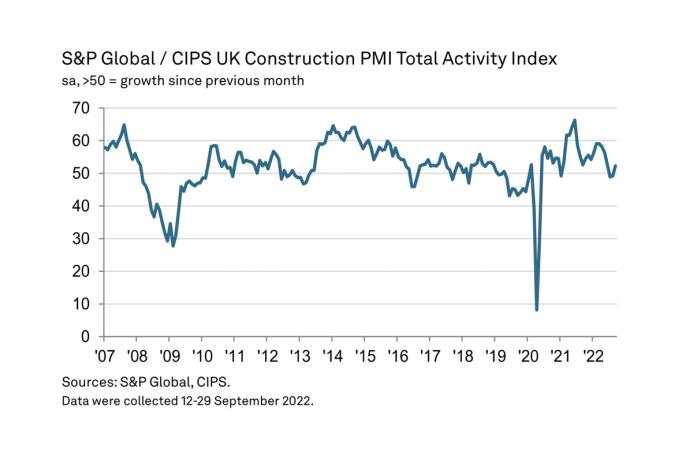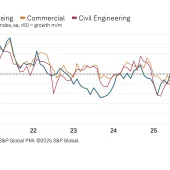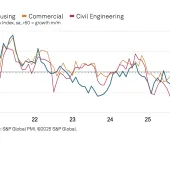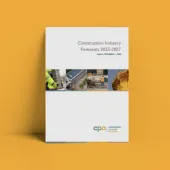Construction output returns to growth in September
Total industry activity rises for first time in three months, but business expectations hit 26-month low
UK construction companies signalled a modest increase in business activity during September, which represented a return to growth after two months of falling output. However, subdued demand persisted, as signalled by the weakest trend for new orders since the recovery began in June 2020.
Looking ahead to the next 12 months, S&P Global/CIPS UK Construction Purchasing Managers’ Index survey respondents remain cautious about their growth prospects. The degree of confidence towards the business outlook dropped to its lowest for over two years in September, mostly reflecting concerns about higher interest rates and a downturn in the wider UK economy. On a more positive note, supply shortages eased in September, with delivery delays the least widespread since February 2020.
At 52.3 in September, up from 49.2 in August, the headline seasonally adjusted S&P Global/CIPS UK Construction Purchasing Managers’ Index (PMI) – which measures month-on-month changes in total industry activity – registered above the 50.0 no-change value for the first time since June. The latest reading was the highest for three months and signalled a modest overall increase in construction output. Survey respondents commented on a boost to activity from work on previously delayed projects.
House building was the best-performing category in September (index at 52.9), with growth reaching a five-month high. Commercial work increased only marginally (51.0), while civil engineering activity (49.6) fell for the third month in a row.
Survey respondents often commented on a strong pipeline of outstanding work, but incoming new orders remained relative scarce in September. Latest data signalled that new business volumes were broadly unchanged overall, which represented the worst month for new orders for almost two-and-a-half years. Construction firms cited slow decision-making among clients and greater risk aversion due to inflation concerns, squeezed budgets, and worries about the economic outlook.
Average cost burdens increased sharply in September, but the overall rate of inflation eased to its lowest since February 2021. Survey respondents noted escalating energy costs and greater prices paid across the board for construction products and materials. Lower fuel prices and improved transportation availability were cited as factors helping to moderate the overall pace of cost inflation in September.
Business optimism for the coming 12 months was relatively subdued in September with the latest survey pointed to the weakest growth projections since July 2020. While construction firms often commented on expected growth due to forthcoming new projects, many also suggested that recession risks and higher interest rates had weighed on confidence.
Tim Moore, economics director at S&P Global Market Intelligence, who compile the survey, said: ‘UK construction companies experienced a modest increase in business activity during September, but the return to growth was fuelled by delayed projects and easing supply shortages rather than a flurry of new orders. Reports of delivery delays for construction products and materials were the least widespread since the pandemic began as greater business capacity and improved transport availability helped to ease pressure on supply chains.
‘However, forward-looking survey indicators took another turn for the worse in September, with new business volumes stalling and output growth expectations for the year ahead now the lowest since July 2020. This reflected deepening concerns across the construction sector that rising interest rates, the energy crisis, and UK recession risks are all set to dampen client demand in the coming months.’










